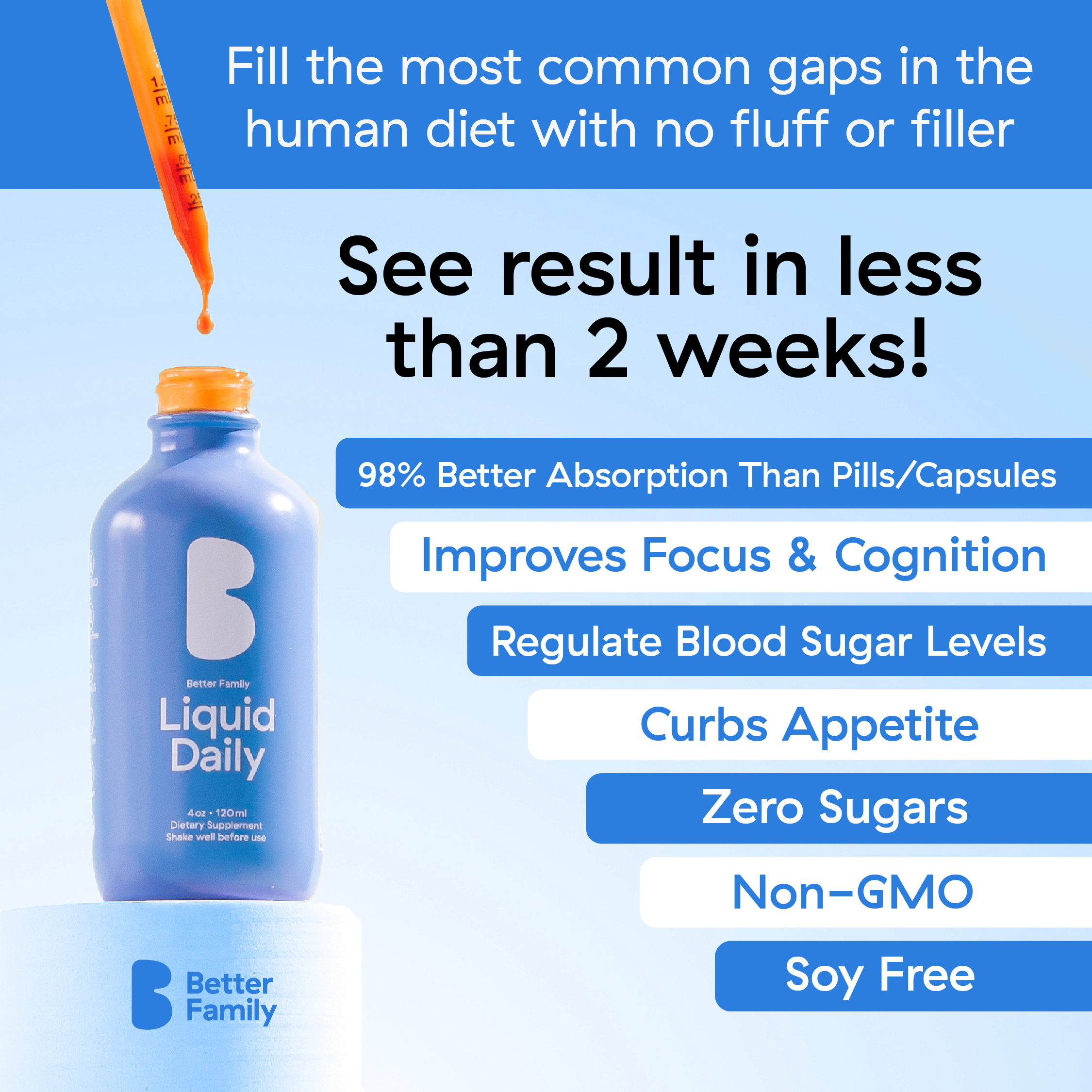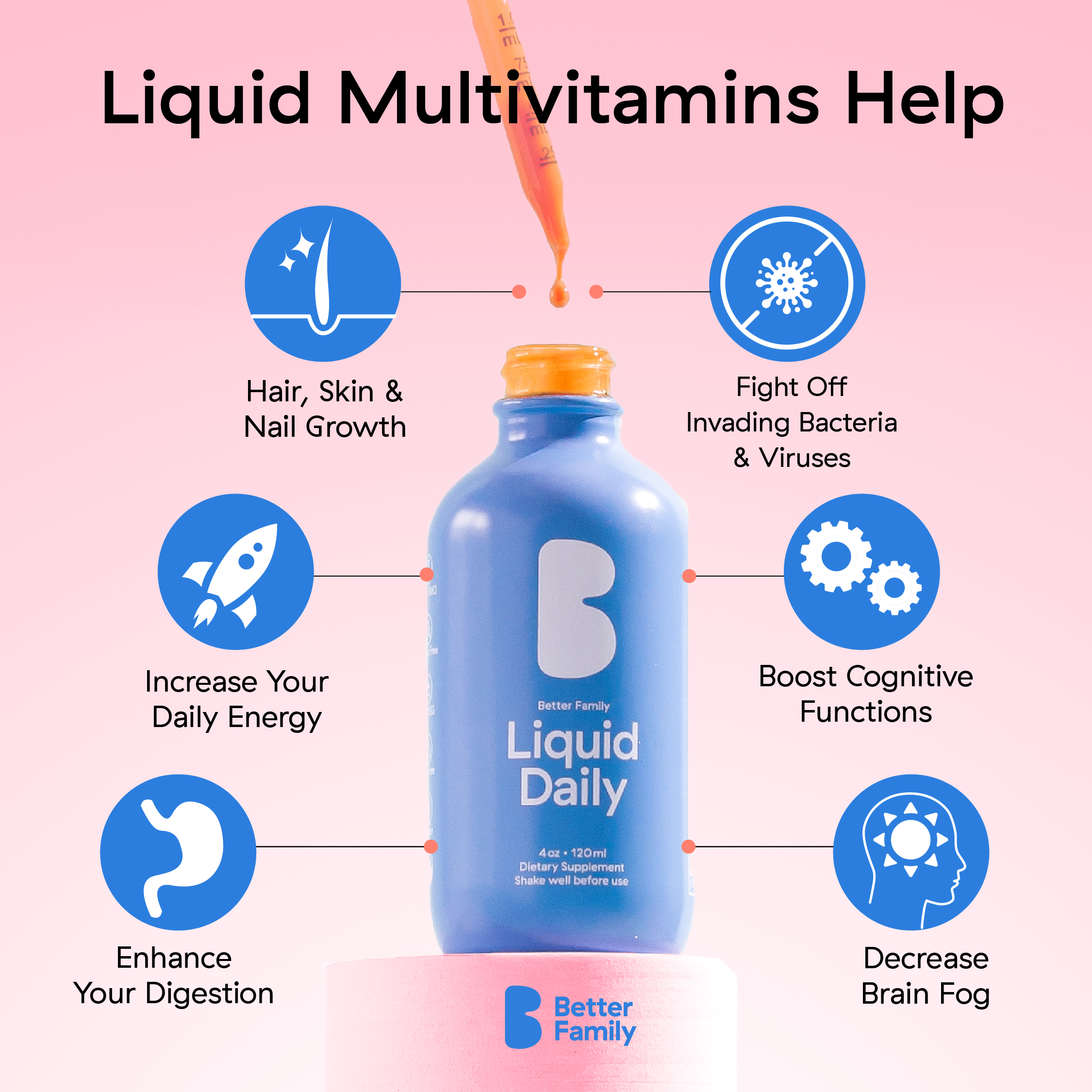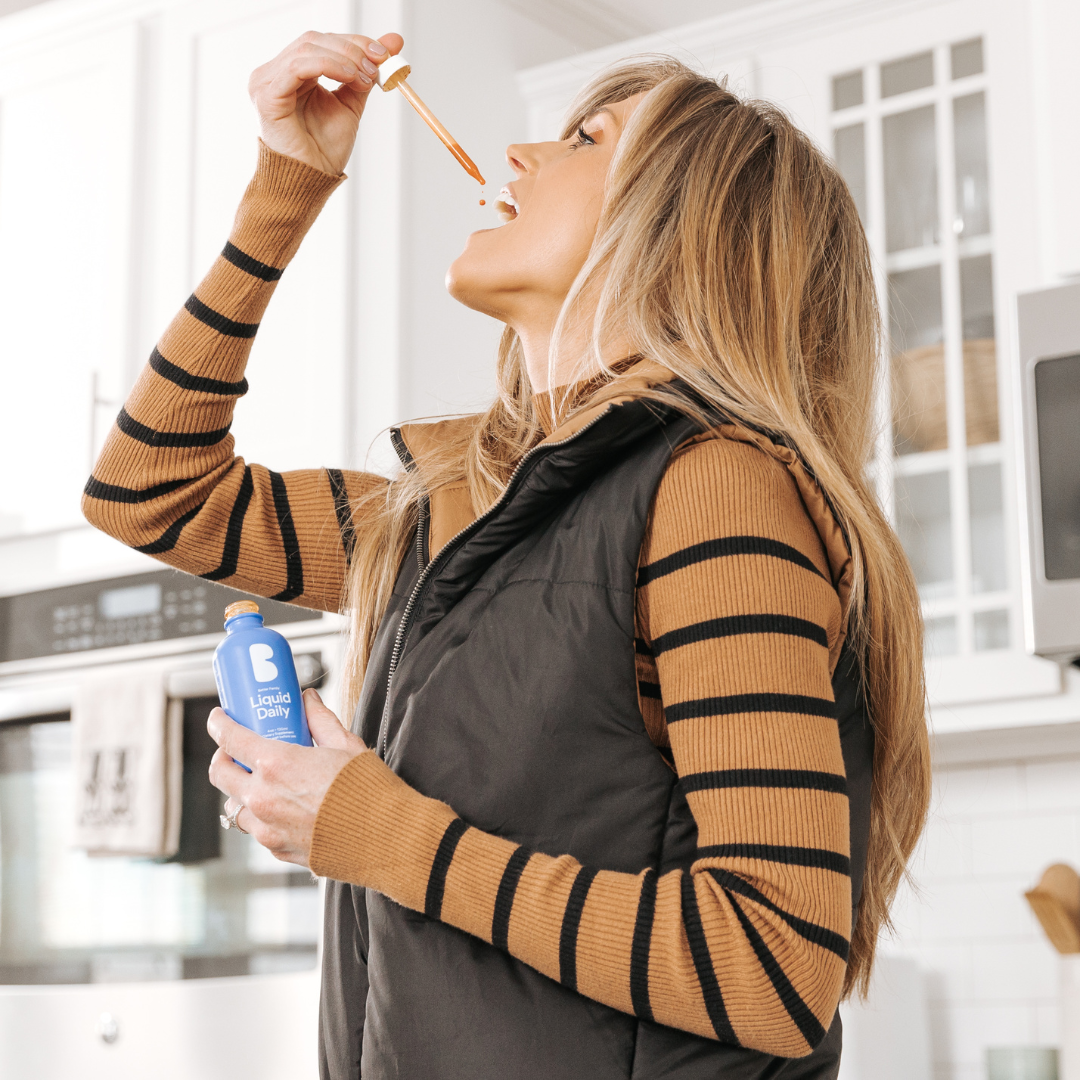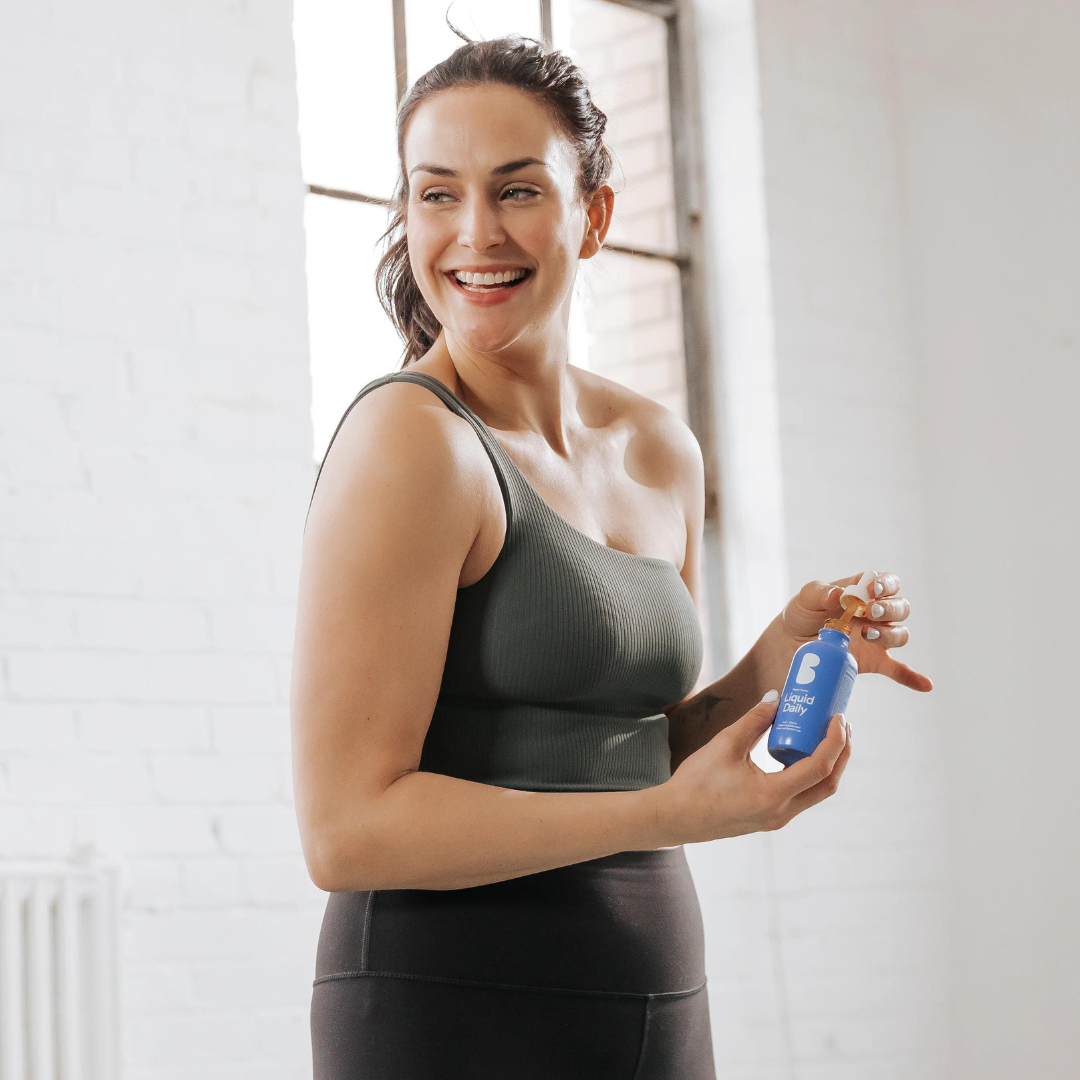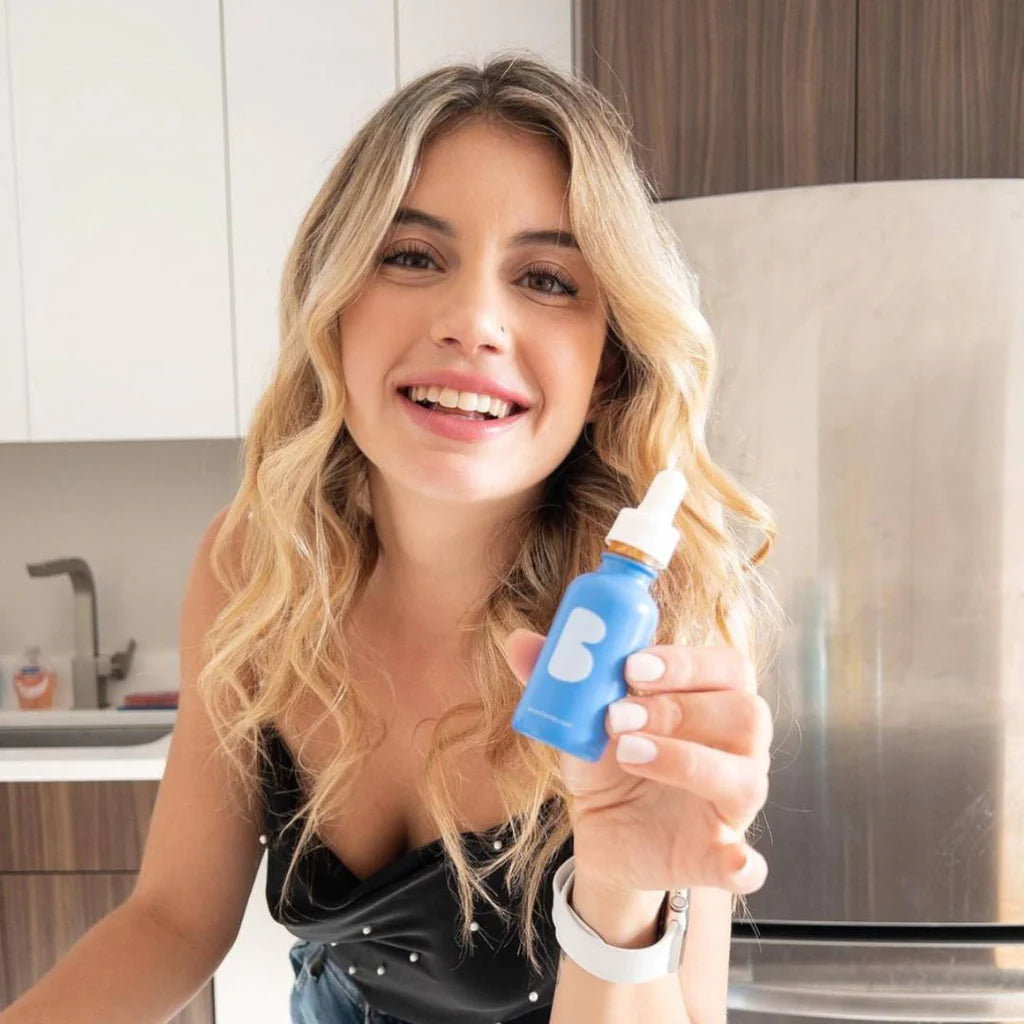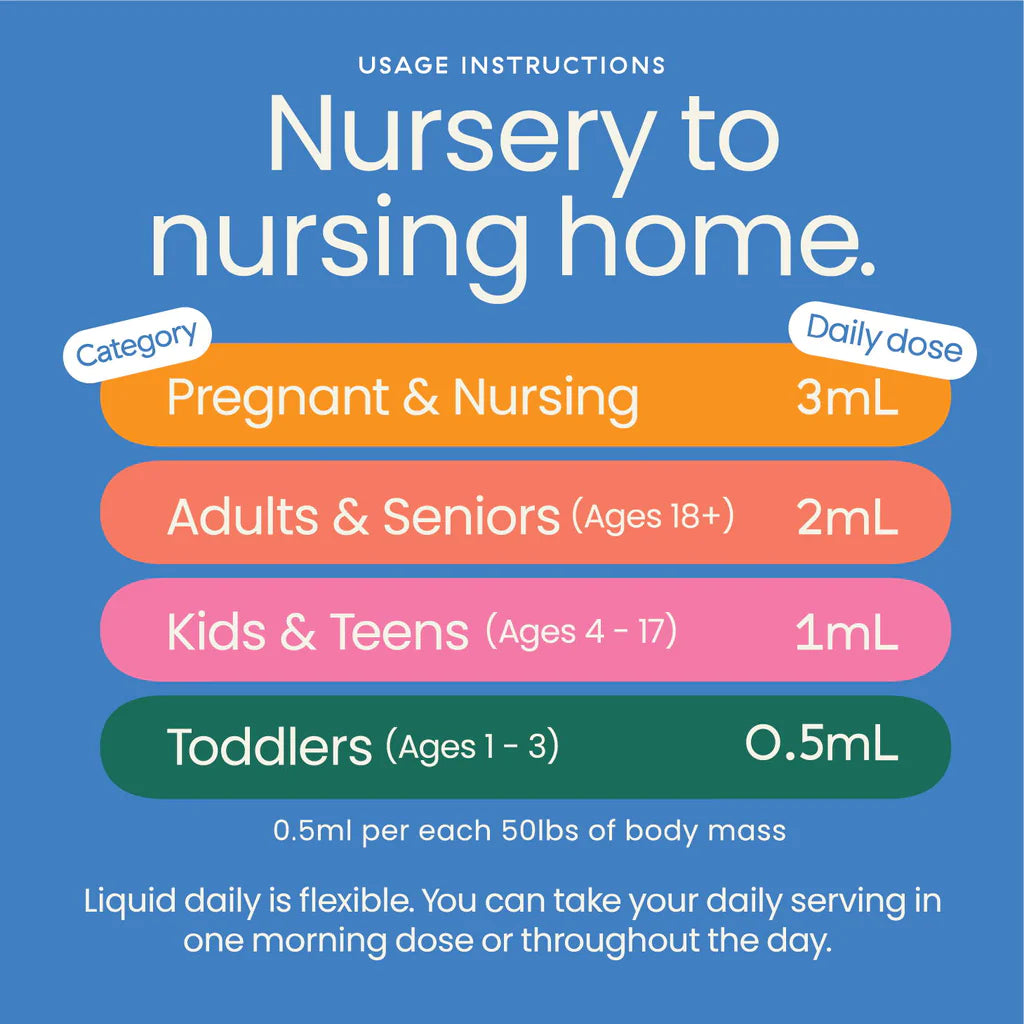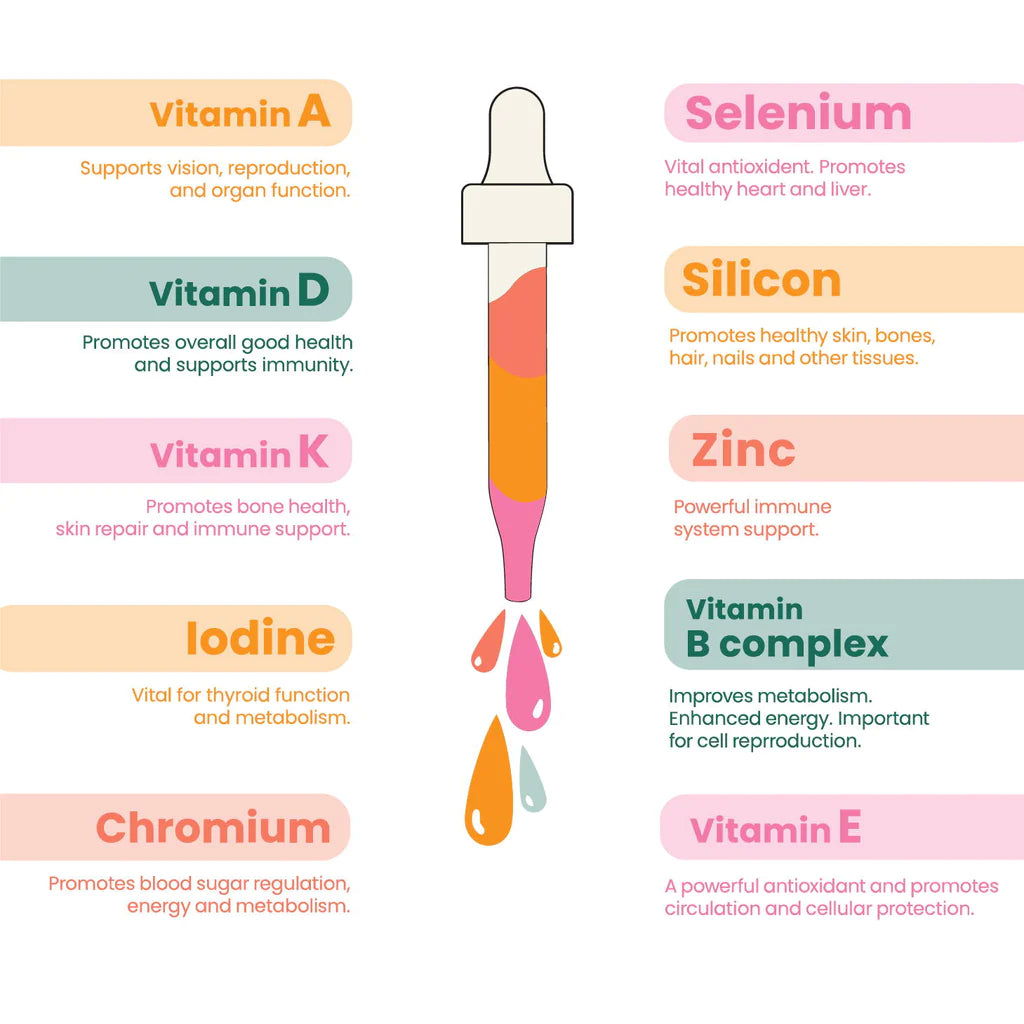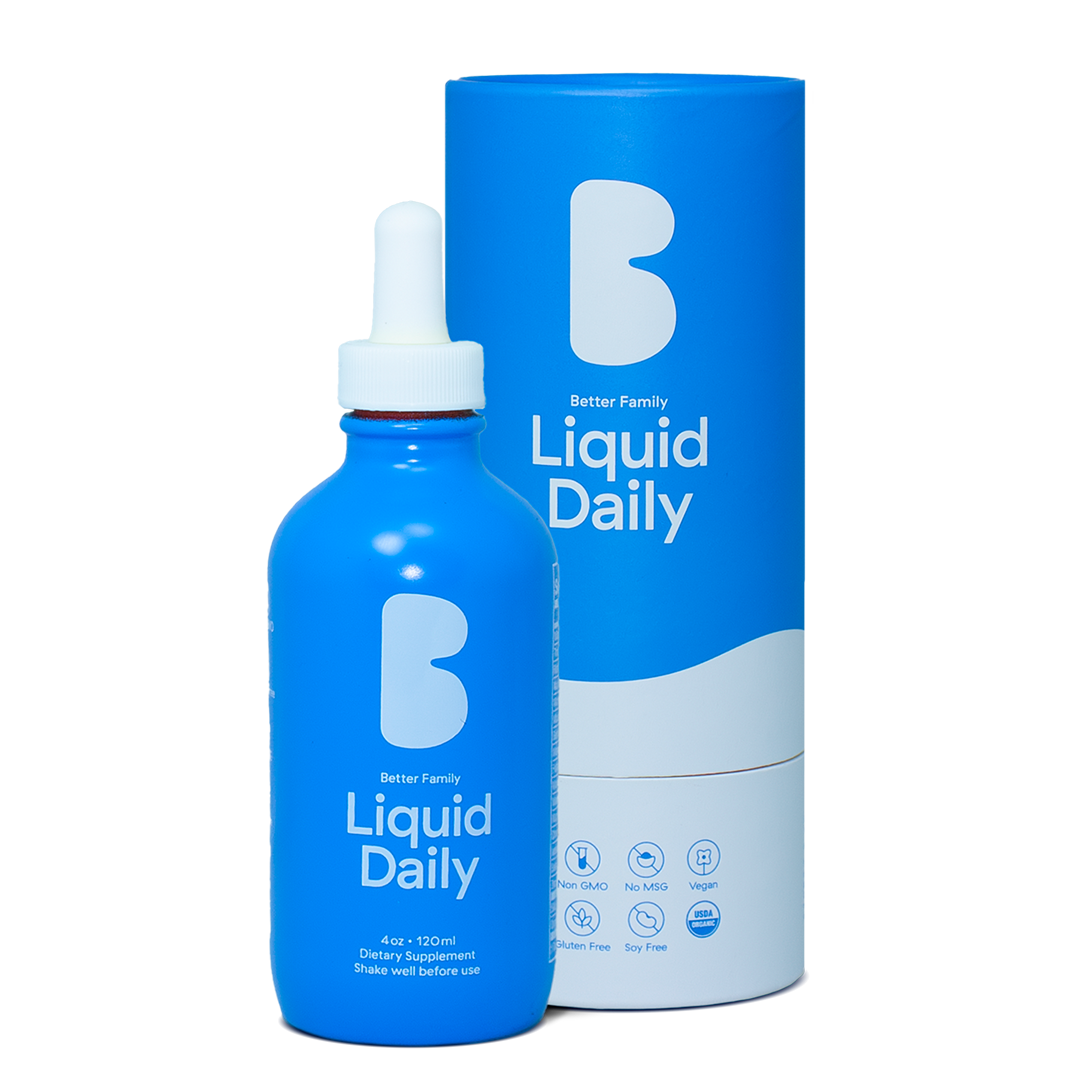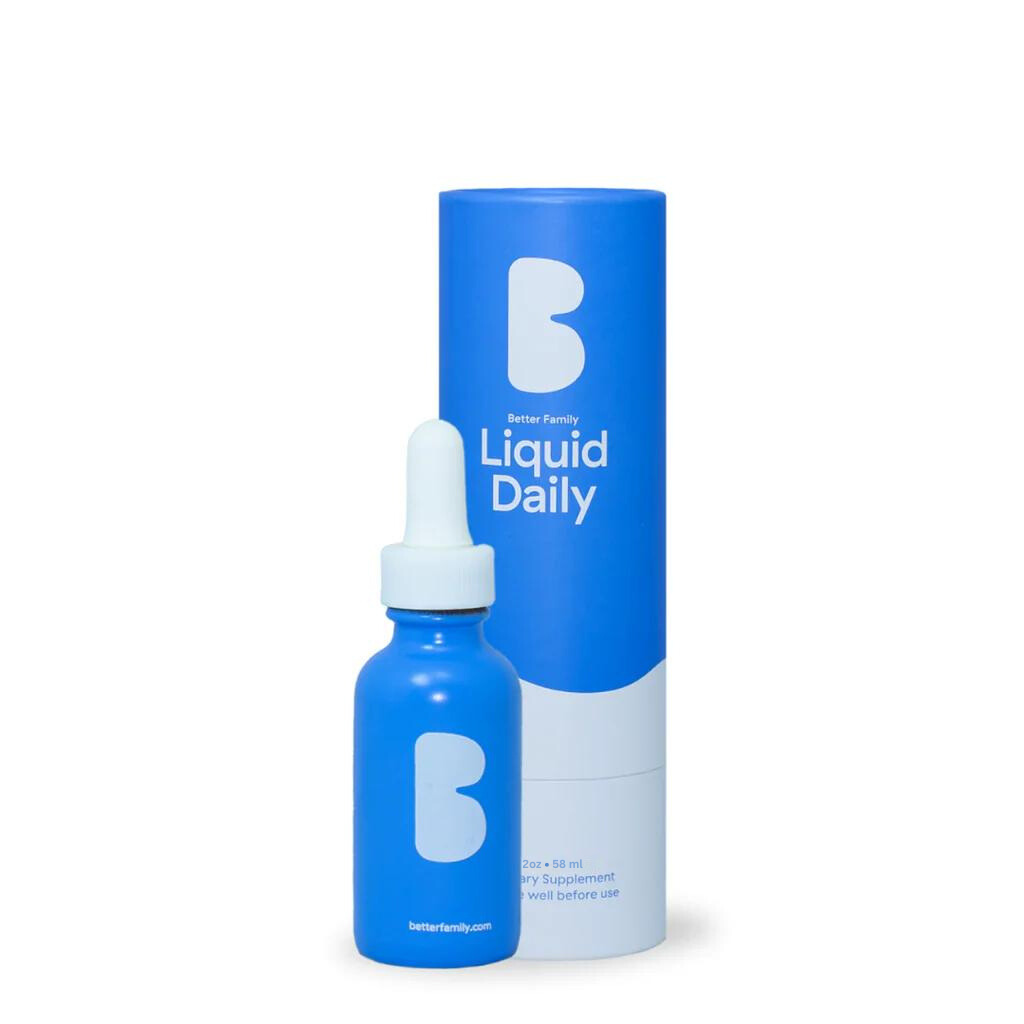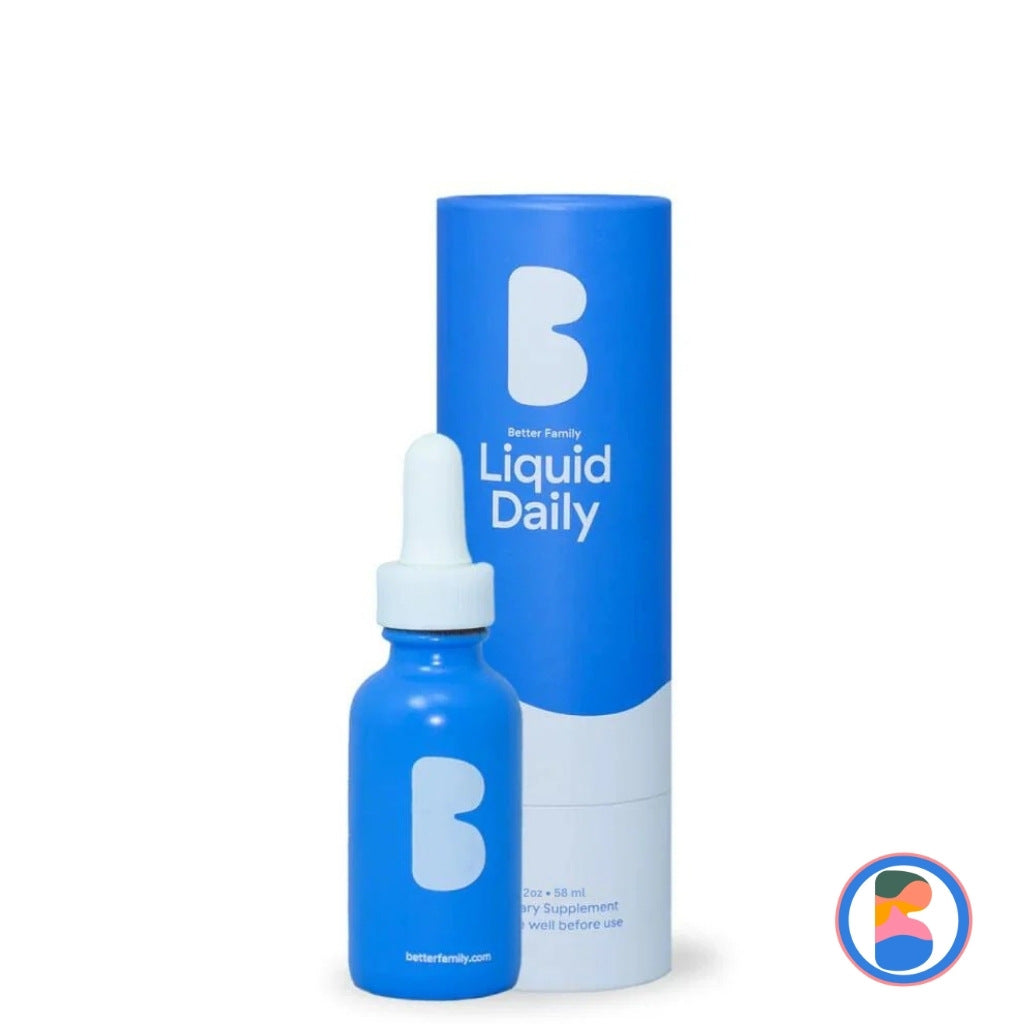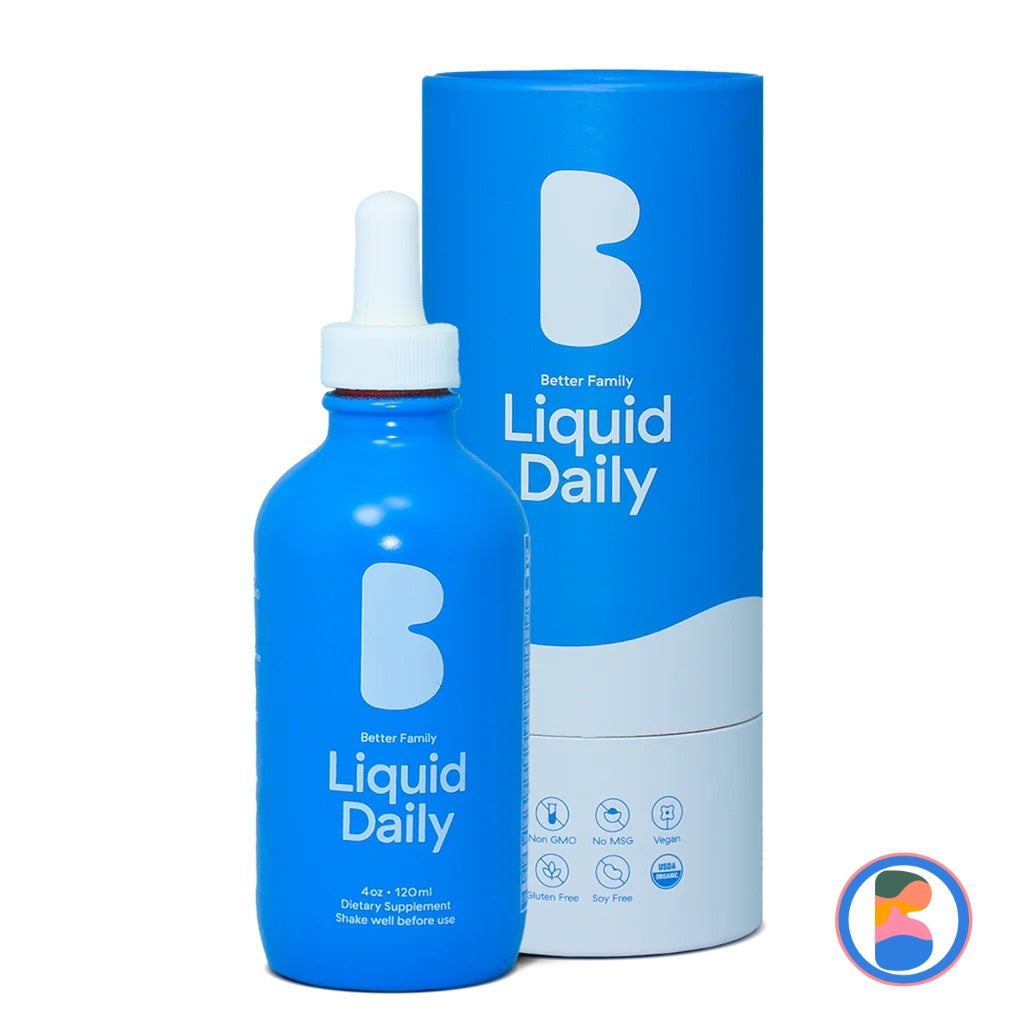From the Better Wellness Center
The Better Wellness Blog
This blog post is brought to you by the team behind Liquid Daily: the better option for filling nutritional gaps in your household.
Liquid Is Better
Simplify Your Routine
You're In Control


Liquid Daily by Better Family
The great tasting, all-in-one multivitamin and mineral made to effectively cover nutrient gaps for your entire household!
BUY NOW3 Useful Autism Supplements For Aggression
Many parents of children with autism spectrum disorder (ASD) report aggression as one of the most difficult challenges they face on a regular basis. Aggression is not considered a symptom of autism, but rather an indication of frustration and anxiety. Those with ASD may find it hard to express their wants and needs due to social or communicational challenges, leading them to use verbal or physical aggression in an attempt to convey their feelings (1).
While supplements should never be thought of as a magical catch-all treatment for any condition, they can be helpful in reducing symptoms by ensuring that the affected individual is getting enough of the nutrients their body needs. You should always speak with your physician to work out the best treatment plan, as they can recommend the right supplements for your situation and provide other forms of treatment as well, such as behavioral or speech therapy.
In this article, we will take a look at 3 nutrients that may be able to lessen signs of aggression in those with ASD, making them valuable additions to the ingredient list of the best liquid multivitamin for autism.
Omega 3 Fatty Acids
Omega 3’s are a group of fatty acids that encompass a variety of roles in the human body. Some of them provide energy while others make up aspects of the structural components of different body parts, such as the retina and the brain (2). Two of the forms are found in fish (EPA and DHA) while one is found in plant sources (ALA) like walnuts, flaxseeds, chia seeds, and more. Since the body cannot make these acids on its own, they are an essential part of every person’s diet.
Research indicates that providing omega 3 fatty acid supplements to children with ASD could reduce some of the behaviors associated with autism. Notable behaviors that showed improvement in these studies were hyperactivity and repetitive behaviors like stimming (3). Another study also revealed that omega 3s may play an important part in regulating aggressive behavior, especially when reacting to a social situation (4). For these reasons, omega 3s may be an effective supplement for those with ASD who often show signs of aggression.
Experience the Benefits of Liquid Daily
Liquid Daily is the all-in-one liquid multivitamin that can be added to any drink or juice!
- 20 Essential Vitamins & Minerals
- Advanced Liquid Absorption
- Zero Sugars, Fillers, or Artificial Flavorings
- USDA Organic
- Safe & Effective for Kids & Adults!
Sulforaphane
Sulforaphane is a compound typically found in vegetables like bok choy, broccoli, and cabbage. It can be classed as an antioxidant and plays a major role in both reducing inflammation and preventing damage caused by particles known as free radicals. The damage caused by free radicals is referred to as oxidative stress, and it is linked to a number of different health conditions. Without a proper balance of antioxidants like sulforaphane in your body, you may be at a higher risk of developing conditions related to oxidative stress.
Sulforaphane may benefit those with ASD by again improving some of the behaviors associated with the condition. One study found that caregivers reported significant improvements in the behaviors of children affected by ASD who were given sulforaphane supplements (5). It may be able to help with such behaviors as hyperactivity, irritability, and troubles with communication, all of which can contribute to signs of aggression (6).
N-Acetylcysteine
N-Acetylcysteine (NAC) is another type of antioxidant. It is commonly used to treat lung conditions or acetaminophen overdose, but it has other notable uses as well, particularly when it comes to ASD. A study has found that providing NAC supplements to children with ASD could reduce both irritability and repetitive behaviors (7). Physicians are currently unsure of how NAC works to improve these symptoms, but one explanation could be its ability to augment the body’s antioxidant network, a system believed to be possibly deficient in those with ASD. Either way, since irritability can lead to aggression and may negatively impact a child’s experience in therapy or in everyday social situations, NAC could be seen as another potential treatment for signs of aggression related to autism.
Resources
- “Why Is My Child With Autism So Aggressive?” Therapeutic Pathways, 2022, https://www.tpathways.org/faqs/why-is-my-child-with-autism-so-aggressive.
- Gunnars, Kris. “What Are Omega-3 Fatty Acids? Explained in Simple Terms” healthline, 23 May 2019, https://www.healthline.com/nutrition/what-are-omega-3-fatty-acids.
- Cheng, Yu-Shian et al. “Supplementation of Omega 3 Fatty Acids May Improve Hyperactivity, Lethargy, and Stereotypy in Children with Autism Spectrum Disorders: A Meta-analysis of Randomized Controlled Trials.” Neuropsychiatric Disease and Treatment, 4 October 2017, https://www.ncbi.nlm.nih.gov/pmc/articles/PMC5634395.
- “Study Reveals How Omega-3 Can Help the Brain to Regulate Impulsive Reactions to Aggressive Behaviour.” Nottingham Trent University, 11 August 2020, https://www.ntu.ac.uk/about-us/news/news-articles/2020/08/study-reveals-how-omega-3-can-help-the-brain-to-regulate-impulsive-reactions-to-aggressive-behaviour.
- Lynch, Rhoda et al. “Sulforaphane From Broccoli Reduces Symptoms of Autism: A Follow-up Case Series From a Randomized Double-blind Study.” Global Advances in Health and Medicine, 26 October 2017, https://www.ncbi.nlm.nih.gov/pmc/articles/PMC5672987.
- Singh, Kanwalji et al. “Sulforaphane Treatment of Autism Spectrum Disorder (ASD).” PNAS, 13 October 2014, https://www.pnas.org/doi/10.1073/pnas.1416940111.
- Digitale, Erin. “Antioxidant shows promise as treatment for certain features of autism, study finds.” Stanford Medicine, 29 May 2012, https://med.stanford.edu/news/all-news/2012/05/antioxidant-shows-promise-as-treatment-for-certain-features-of-autism-study-finds.html.
"I give Liquid Daily to my daughter and she barely tastes it, even just added to water, which is great!"
- Olivia T.
Try Liquid Daily - the methylated liquid multivitamin packed with 20 essential vitamins & minerals.
BUY NOWMore articles from Better Family


